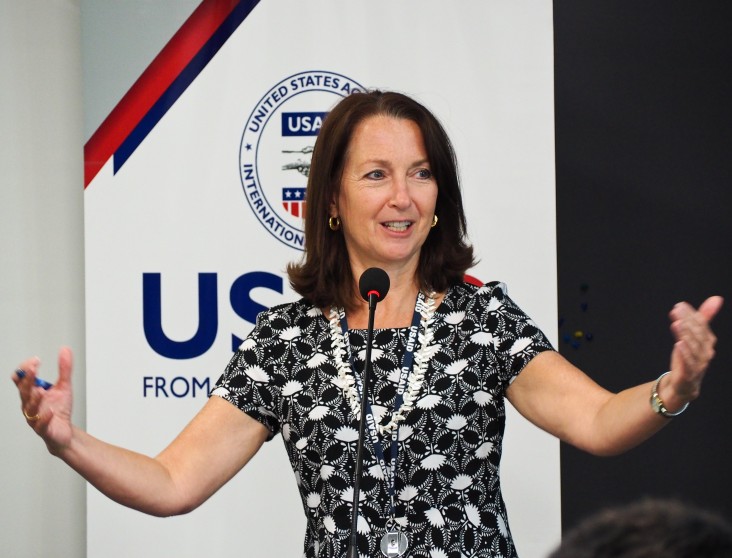
I’d like to welcome you all to USAID’s regional training facility. And thanks to the Rockefeller Foundation for partnering with us on this important event. Since Jan 2014, “resilience” has been part of USAID’s core mission as we look to partner to end extreme poverty. And I believe resilience is here to stay as a key analytic, programming and organizing concept for our development investments for years to come.
USAID’s focus on resilience dates back to 2012 when we launched our policy and programming guidance, “Building Resilience to Recurrent Crises.” It was largely inspired by the droughts in Sub-saharan Africa where USAID and others were pouring huge sums of money for humanitarian relief alongside substantial development investments. However, things continued to get worse, and there was a collective realization that we needed to operate differently.
We needed to sequence our development and humanitarian investments seamlessly. We needed to co-locate humanitarian and development investments in the same place, focused on a common purpose, and we needed to break down the funding silos to support the integrated programs that could address the underlying drivers of risk. In short, USAID was among the many donors and governments that realized it was too costly to treat these perennial shocks as anomalies rather than endemic features of the places we worked.
Since that time, the field of resilience has continued to evolve — and its applicability in Asia has never been more clear than it is today. This is a region characterized by dynamic change—rapid economic growth coupled with environmental degradation, intense urbanization and climate change.
Shocks come from natural hazards like the typhoons swirling in the Pacific. And also from simmering conflicts, like the response to the new constitution in Nepal, where schools have been shut down for extensive periods in the Terai along the Indian border, and now fuel shortages are crippling the country as part of the same protests.
Climate change is a reality playing out in extreme weather events around the world. Each week, the international news covers a seemingly endless stream of the worst disaster and climate challenges ever to hit Asia. You can fill in the blank with extreme floods, storms/cyclones, landslides, heat waves, fire, drought. And these extreme events will continue with greater intensity and frequency.
Asia is also a region characterized by gender inequality and social exclusion and losses in forest cover and species extinction at an unprecedented rate. By all accounts, things are getting riskier in Asia. And one thing is certain: change will continue.
But it is not all bad news; this is also a time of unprecedented innovation. Solutions to the world’s challenges are being developed in the very communities that are adversely affected — from high-tech solutions developed in laboratories or by teenagers armed with smartphones; to more simple solutions that have been passed through the generations and are being resurrected.
These include restoring mangroves to protect shorelines and foster fish and seafood systems; traditional building techniques using bamboo,which are earthquake resistant, or elevated houses, which used to be the norm in Thailand.
It gives me great hope to see all of you here today. You are experts in your fields who have come from all corners of the earth because you believe that we can do things better.
Over the next two days, I challenge you to push one another to expand your thinking and discover new ways of working together. You all know the urgency of these issues, and the opportunity that the collective minds in this room represent. I wish you luck for a successful workshop and I look forward to hearing your ideas at the end of the week.
Thank you.







Comment
Make a general inquiry or suggest an improvement.